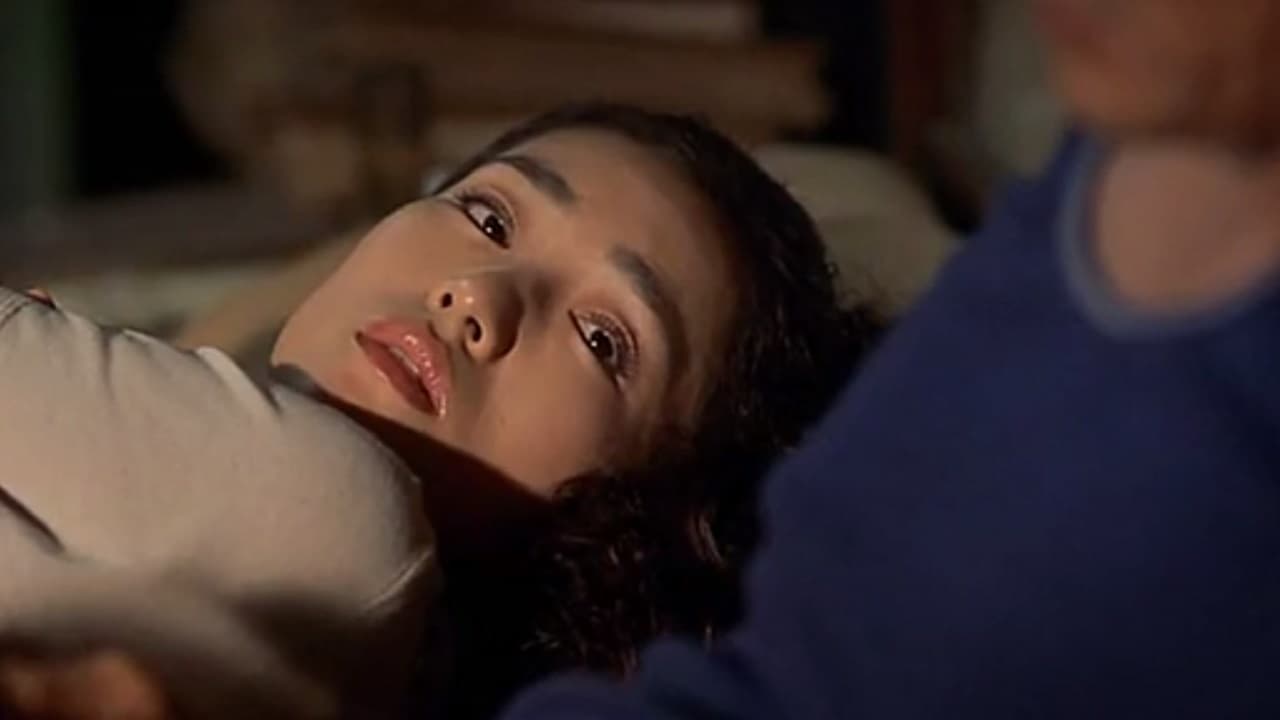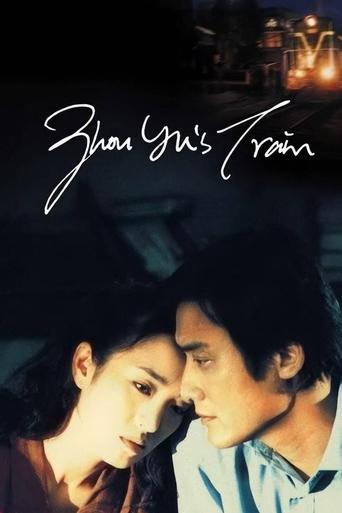

I found this movie very beautiful and intriguing, mainly the cinematography, the soundtrack and the wonderful performance of cast with Gong Li, Tony Leung Kafai and Hanglei Sun. Unfortunately, the non-linear screenplay, associated to the difference with the Western cultures and language and the unusual names of the locations, made difficult for me to understand some parts of the story, and I had to rewind the DVD. The mysterious character of Xiu (Gong Li), the narrator, is not well explained and I believe she might have imagined the love story while reading the poem "Zhou Yu's Train" of Chen Qing, with Zhou Yu being her alter-ego. The last scene, disclosing the lake hidden by the fog, is fantastic. I am not sure whether the death of Zhou Yu in the bus accident is another metaphor. I intend to see this movie again in a near future, trying to understand it deeper and reevaluate my vote, which is presently six.Title (Brazil): "O Trem de Zhou Yu"("Zhou Yu's Train")
... View MoreRegular readers of my comments know that nearly all my viewing is by recommendation. So, often I will pick a film that I know nothing at all about; this is one of those.My goal is to stumble upon a hidden gem that has escaped all the geniuses I know, that has such power that it takes me by surprise. Friends, if you are reading this and haven't yet seen the film, I have stolen the joy of discovery without knowing; but please do see this. It is precious.It is something between the best of Tarkovsky and what you might like of Kar-Wai Wong.The story is purely in service to the cinematic images, and those are in service to some very pure notions: Poetry as love, love as travel, travel as painting, painting as copying one's self and sending it out, going out as diving into water, diving as love, love as poetry.Unbelievably, each of these concepts is displayed in images of a train. You have to see it to believe it. Trains have been with film since the very beginning, and have been handled by masters. But I have never seen it so thoroughly explored, extended and exhausted as here.The narrative is folded and shifting. It could be a poem, a porcelain painting, a story from each of the four main characters that invents the others. It is quite confusing the first time around.The main thread is in the real world: a porcelain artist falls for a poet in another city. He writes poems for and about her, including her journeys on the train to see him. He gets sent to Tibet. She follows and on the way back is killed in an accident. Later, another woman (played by the same actress) meets the now famous poet and they fall in love. Or do they? This second woman travels on the same train.All of this is chopped and shifted around in presentation, and you have no idea who is telling or seeing what, including several episodes where the first girl also falls for a veterinarian she meets on the train. He may be an imaginary figure. Both the girl and the poet love two people but their bond, at least according to the poems, is much stronger.That's all the story you need to know to not be unsettled and to just go with the flow.What reminds me of Tarkovsky is the way the camera invokes parallel realities as if it glances into the mind as easily as outside a window. The camera is restless and goes to odd places, but once there temporarily becomes meditative. The simplest scenes become blossoms.If you ever loved someone distant, you'll recognize the magic of yearning driving a mythologizing of reality.You have probably seen the actress who plays the two women, Li Gong. She is as good as Liv Uhlmann in the way that Liv is capable of small, flitting expressions that each contain whole lives. She has some American films in production, I see.Please see this.Ted's Evaluation -- 3 of 3: Worth watching.
... View MoreQuite simply one of the best films ever made! Every element combines to produce a multi-layered masterpiece that revolves around the central tour-de-force that is Gong Li. This has to be her best film yet and she is wholly served by her fellow actors and production crew. Director Sun Zhou is a master of light with every scene's mood enhanced by his total control of the medium. One would like to have seen this film win multiple awards but the limited number of screens available to 'difficult' films like this make it nearly impossible to attain the recognition it deserves. Equally, Gong Li - the world's most beautiful and accomplished film actress - remains unknown to the unhappy teenagers who have only a diet of dross on which to feed their heads.
... View MoreIn comparison to most other Chinese movies, the title of this movie has very significant symbolic meaning, symbolizing the point of no return. It also has an poetic meaning, which neatly related to the plot of the movie which include a poet. This is one of most obvious achievement of this movie, which also makes it a little different from the rest of Chinese movies.The social critic aspect of the movie is rather something ordinary, a theme that is common in most social critic films in contemporary China, and it is none other than the criticism of hedonism, materialism, and other common stuff you would find in Chinese movies about modern China.
... View More